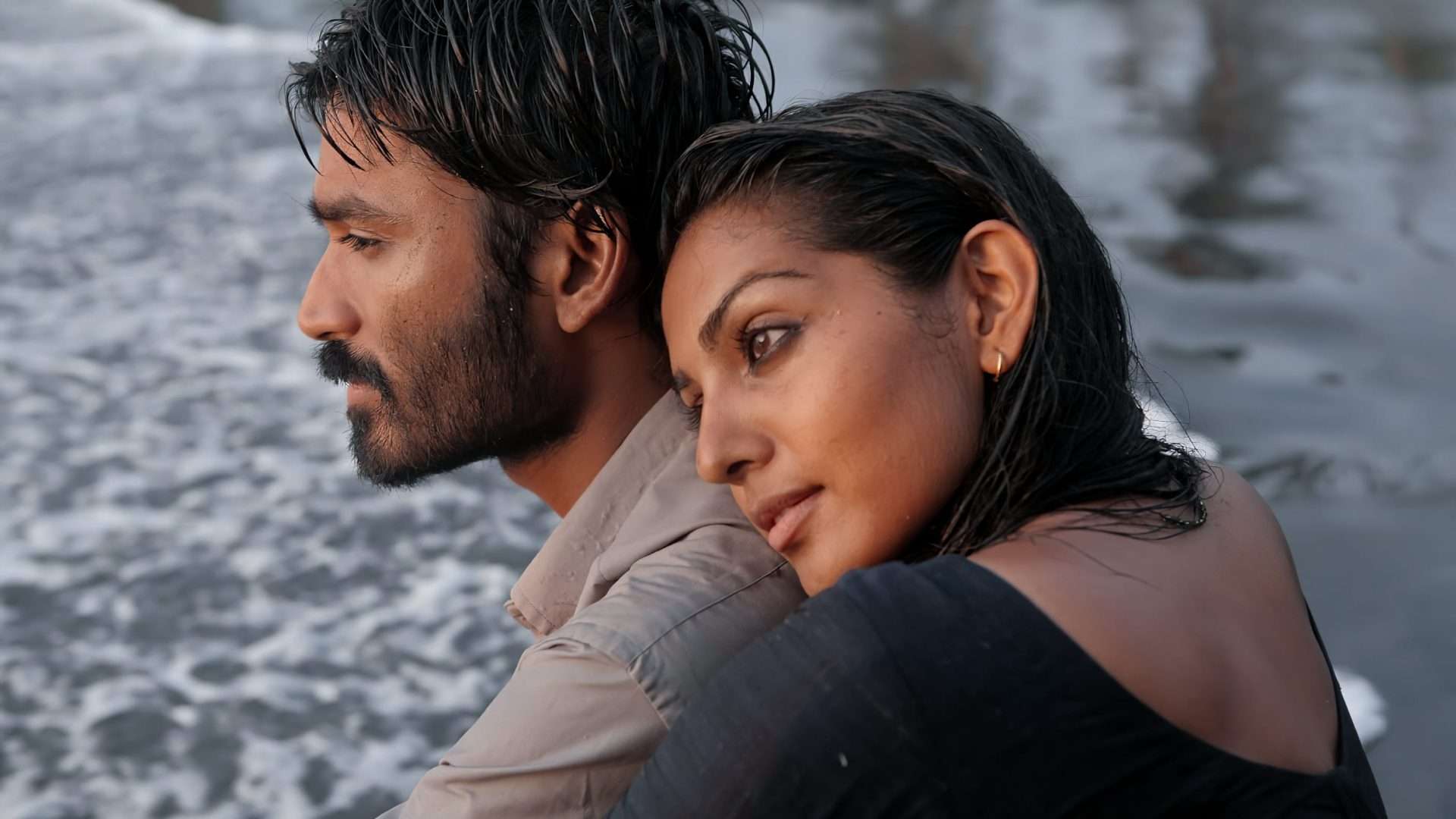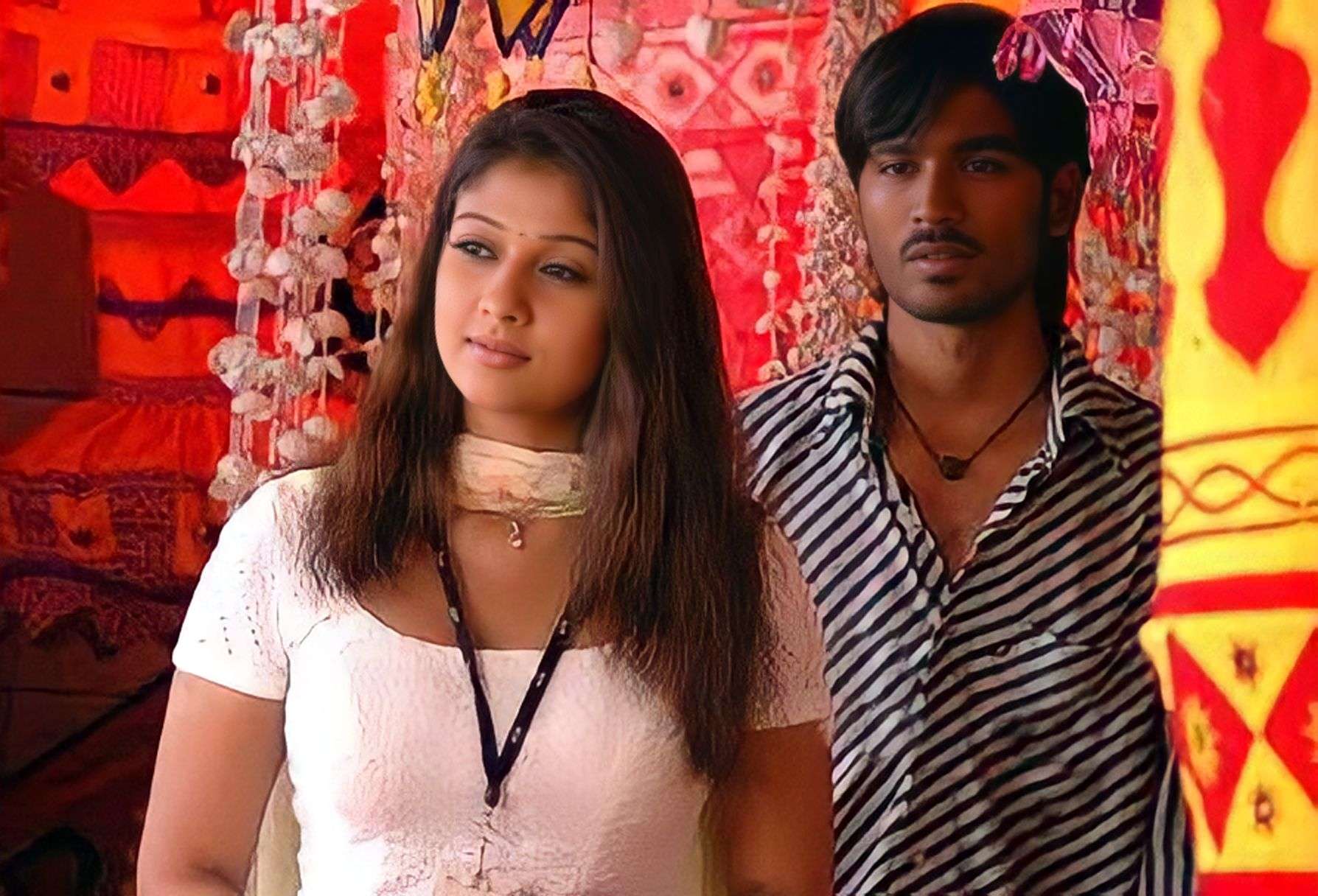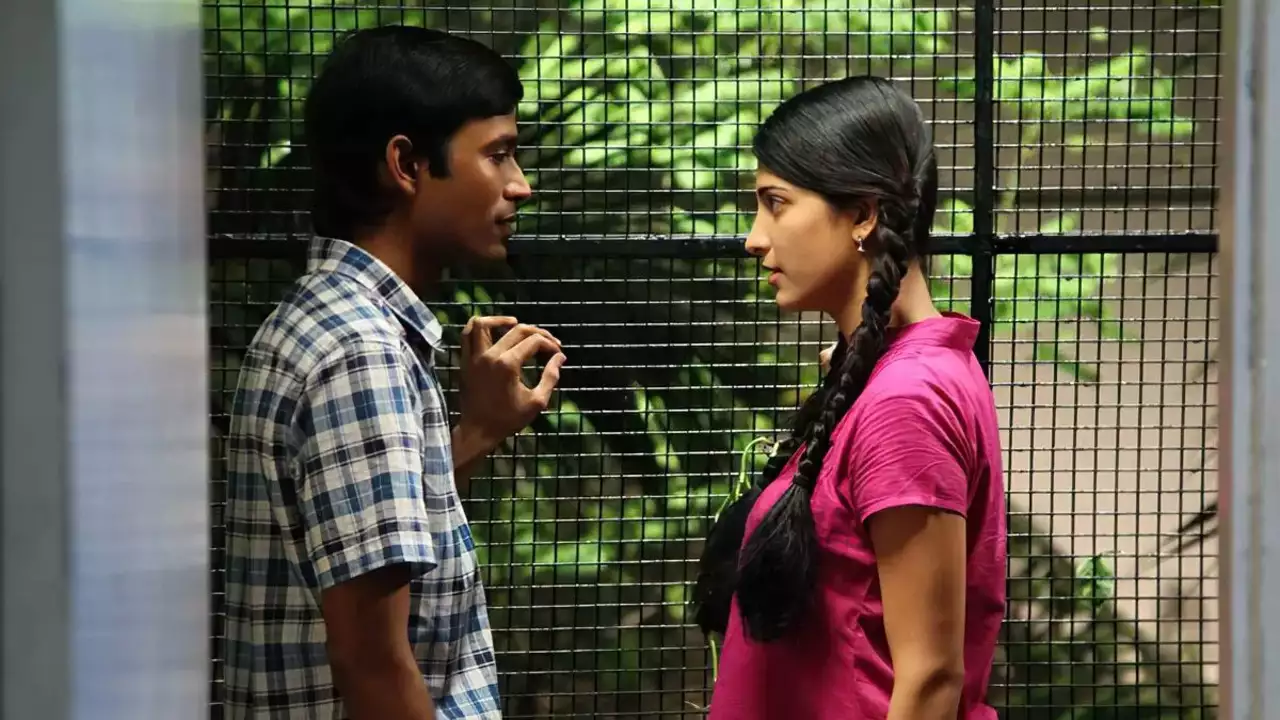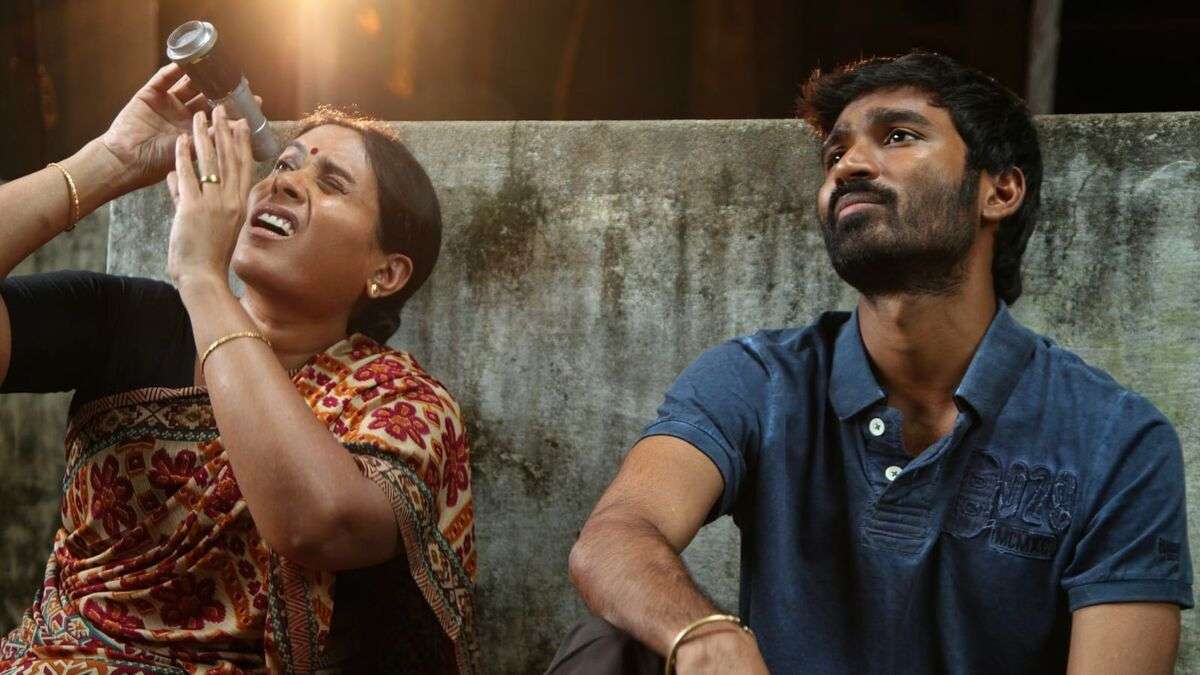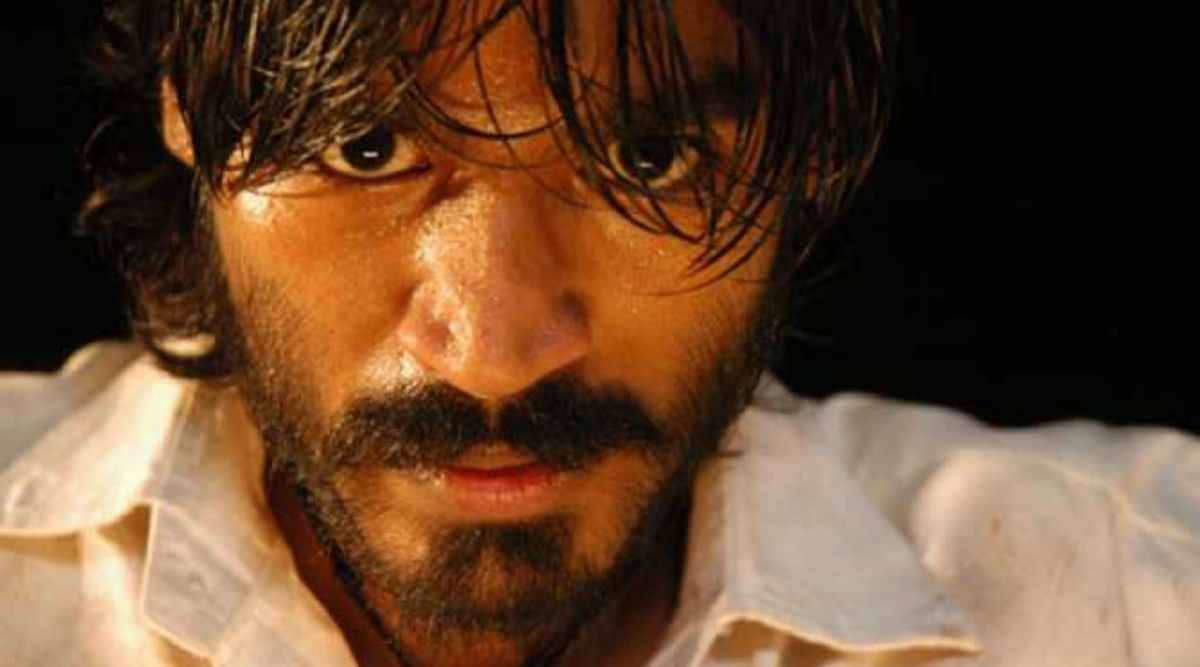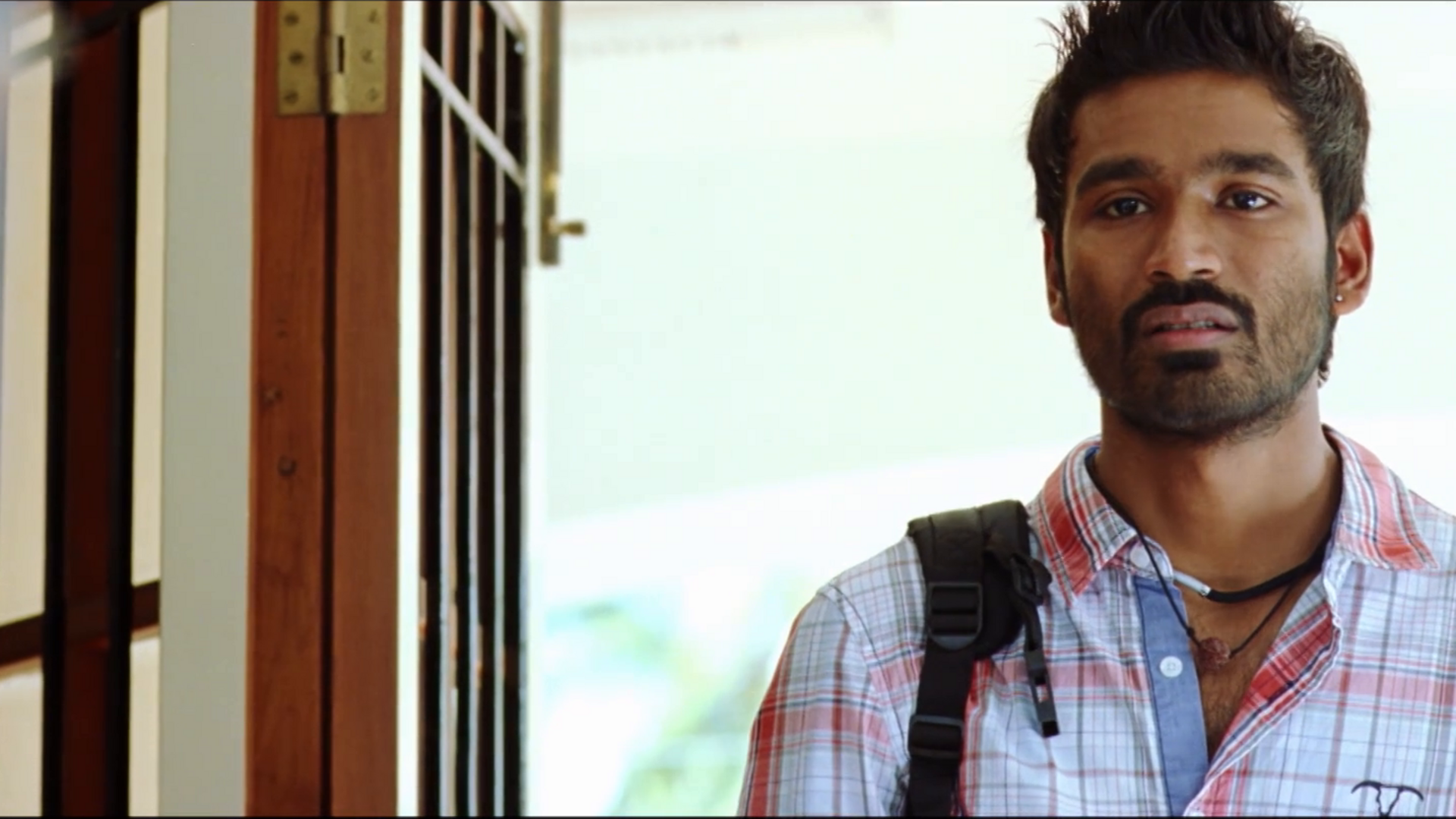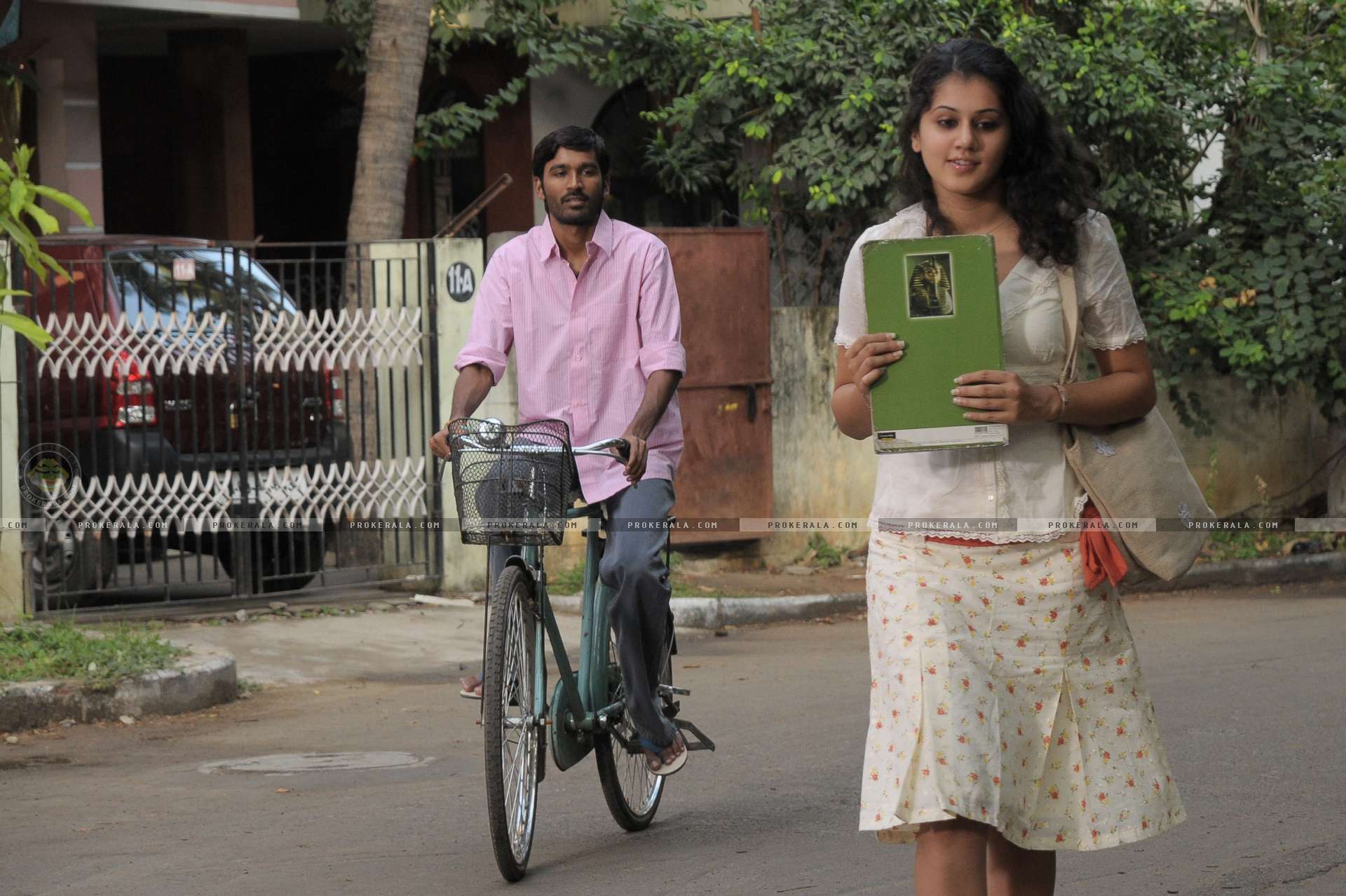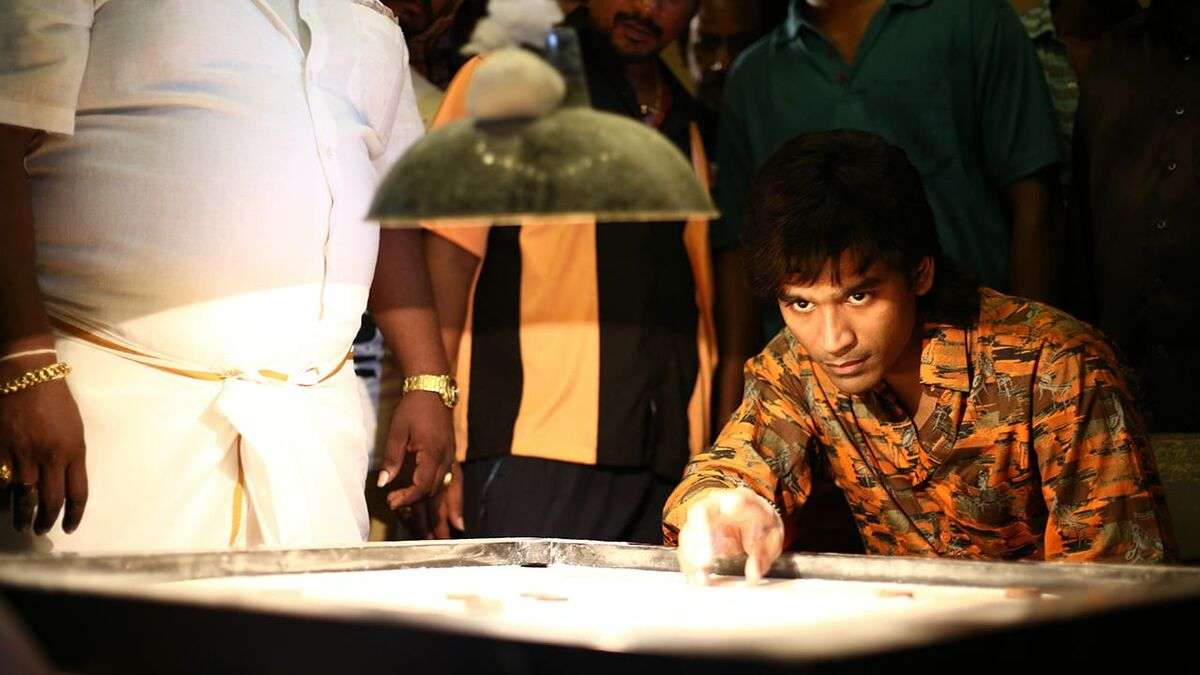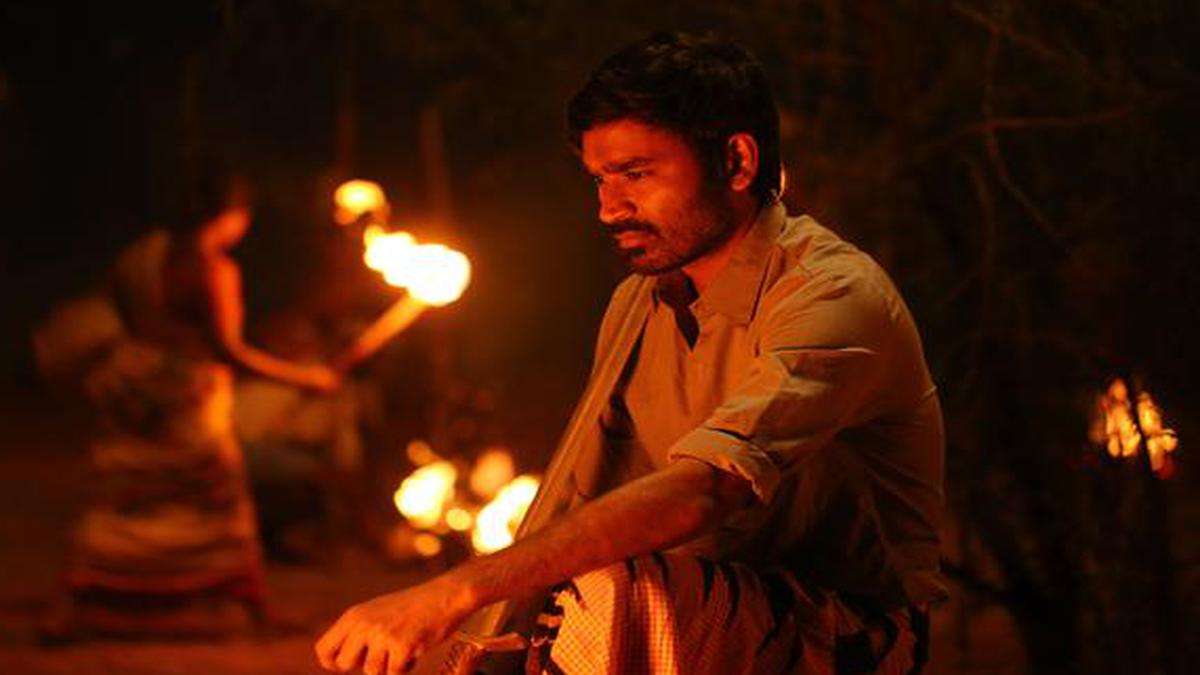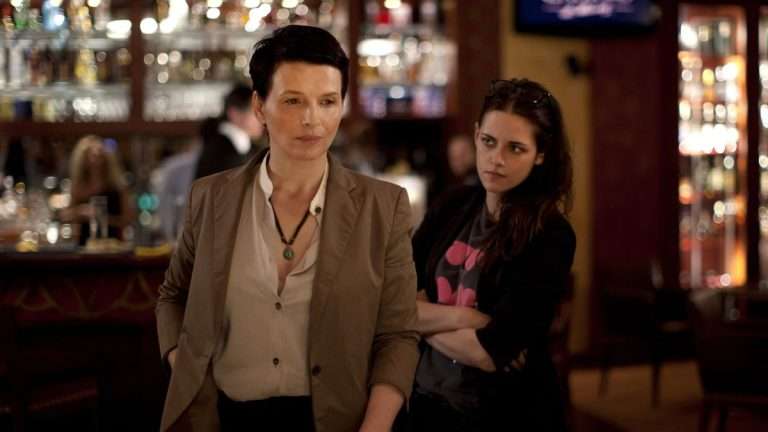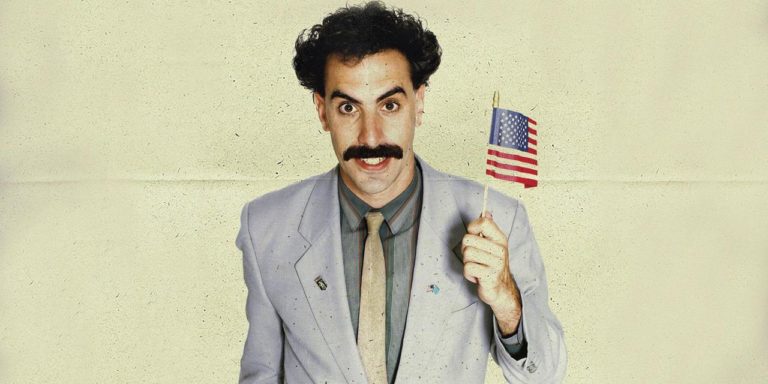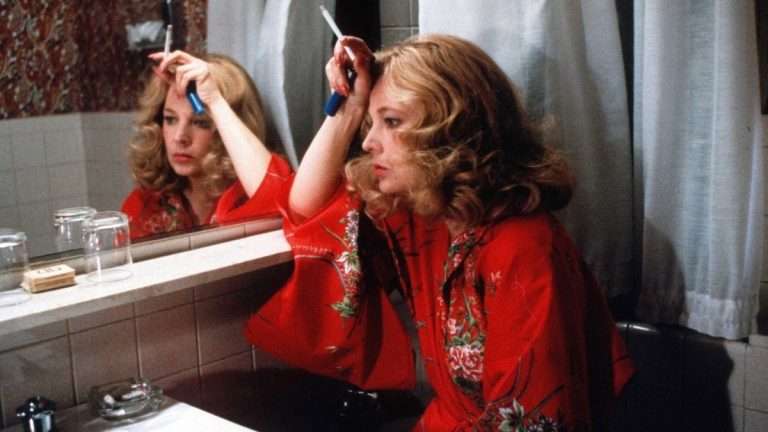De-aging technology, be gone! Shave off his beard, and from a ruthless, cold-hearted brute, Dhanush slips into the role of a cocky teenager with convincing ease. From his powerful, throat-grabbing performances in Asuran and Karnan to the painfully relatable and light-hearted roles in VIP and Uthama Puthiran, Dhanush is the living testament of a chameleon.
There is no restraint to his acting abilities, and it’s incredible. There isn’t a role he hasn’t pushed himself in, not a single one slapped with the tag of mediocrity. He puts himself out there, experimenting with various characters, dabbling in multiple genres, and deviating from the usual norms of blockbuster cinema. The result is a sprawling, amusing filmography replete with performances of immense range. Dhanush is unlike the stereotypical Tamil superstars; there’s an air of professionalism in his work and a careful choice of characters, strongly echoing the work of Kamal Haasan.
Born Venkatesh Prabhu Kasthuri Raja, Dhanush was born into a family of filmmakers. His father, Kasthuri Raja, was an established director, and eventually, his brother Selvaraghavan would make his own mark. In fact, his debut performance in Thulluvadho Ilamai (2002) was a family effort, with Selvaraghavan being its scribe and director, but credited to their father for commercial purposes.
Dhanush got his big break with Selvaraghavan’s Kaadhal Kondein (2003), which launched their careers. He has worked with numerous directors, and his collaborations with Mithran Jawahar and Vetrimaaran prove his immense talent. Tamil cinema cannot sustain this man’s skill and unmatched virtuosity; he made his Hindi debut with Raanjhanna and Atrangi Re and made a splash in Hollywood with The Gray Man, which is, unironically, the worst film he’s ever been in!
Dhanush has his fair share of duds and flops, albeit his performance, more times than ever, is the saving grace. His charm is infectious, the emotions he expresses are beautifully subtle, and the range of his performances is simply mind-boggling. So, keeping the film’s merits in mind, here is a ranking of his ten best performances.
10. Maryan (2013)
Part romance and part survival thriller, Maryan is an unevenly paced but cinematically gorgeous film, held high on the performances of its two main characters. Dhanush plays the titular Maryan, a fisherman with the unique moniker ‘Kadal Rasa’ or the ‘Sea King’ because of his supreme ability in the sea. Maryan goes to work at a Sudanese oil rig for two years to pay off a loan.
With his contract ending, Maryan waits eagerly to meet his lover, Panimalar (Parvathy). But tragedy strikes when terrorists hijack the van he’s traveling in and take him hostage. The film shows the blossoming love between him and Panimalar, the problems that got him far away from home, and his survival in the Sudanese desert.
Inspired by a real-life incident in 2008, Maryan starts as a powerful and carefully examined love story, jam-packed with beautiful frames and head-bobbing songs. It evolves into an endearing survival story with a focus on Dhanush. Survival dramas are an excellent opportunity for actors to shine in both their physicality and emotional range. Dhanush excels in both; he pulls off the respected Maryan of the sea and the weak, starving Maryan of the desert, his antithesis, with convincing ease.
There’s nothing showy or over-the-top in his performance. Instead, the strengths can be found in the subtleties, like his hallucinations and frenzied monologues. Parvathy Thiruvothu gives an excellent performance as the rebellious Panimalar. With its slow pace, Maryan wasn’t exactly my cup of tea, but it features a severely underrated Dhanush performance.
9. Yaaradi Nee Mohini (2008)
Yaaradi Nee Mohini seesaws between comedy and tragedy. There’s happiness, sadness, and madness of the same measure. There’s romance, and there’s equal despair. There’s simplistic philosophy, humor naturally emerges from its simple premise, and it ends on a pleasant note. I remember this film faintly, never confident enough to confirm I watched it.
I’d say I never even watched the movie before my rewatch. But I realized Yaaradi Nee Mohini is one of those films whose feelings and overall niceness are what you remember more than the plot itself. It gleams with a synesthetic quality.
Yaaradi Nee Mohini is many things and emotions bundled into a neat film. It’s the pain gripping your diaphragm when you’re rolling on the floor with your mates, laughing at a really dumb joke. It’s the awkwardness when you ask your father for money; it’s also the burning throat when you’re fighting him. It’s the raging hope of connecting with someone you love and the despair that settles when all hope is lost.
Director Mithran Jawahar and writer Selvaragahvan subject their disillusioned but determined main character to the ultimate middle-class suffering. It’s a film that appeals to your empathy, simple as that. We follow the misadventures of Vasudevan, the son of a perpetually reprimanding father, played by Raghuvaran. Dhanush embodies a primitive stage of the characteristic swagger, which will dominate his later work. His character is immensely relatable, and he plays it gracefully. He balances comedy and seriousness without making it overbearing. It’s a satisfactory performance for the up-and-coming actor.
Raghuvaran’s final performance before his sudden demise is commendable. He captures the experience of the Indian parent with terrifying accuracy, of their authoritarianism, permeating from their conservative upbringing, of their hidden ways of loving and caring, of their secret sufferings, and of hope for their children to be better than them. It’s universally stirring and a telling testament as to why he was, and is, one of the most outstanding performers in Indian cinema.
8. 3 (2012)
‘Why This Kolaveri Di’ wasn’t a song but a phenomenon. It grabbed the world and shook it because social media did its thing. It topped the charts, mainly YouTube, whose prestige I cannot evaluate. Unlikely listeners from Japan to the Americas bobbed heads and broke into flash mobs to this song, a ‘soup’ song, a flop song, about heartbreak and loss and good old alcohol.
Yet, what this ‘Tanglish’ song did for national integration is truly endearing; North Indians and South Indians finally had another song they could sing in harmony, saving fights with the aux. Oddly enough, there’s a faint buzz on the film it’s based on. An overlong, well-acted melodrama, 3 or Moonu is writer-director Aishwarya Rajnikanth’s debut film, with husband Dhanush chipping in with a remarkable performance.
3 is a coming-of-age story laced with tragedy, of two lovers blooming through three crucial points of their lives: adolescence, adulthood, and cut short by death. At her husband Ram’s funeral, Janani hallucinates that he’s run away. We see her living through the drudgery of daily life, and she reminisces about the first time she met him — in high school when they were in the same tuition class. As the flashback narrative progresses to cover their whole life till the present, Janani demystifies Ram’s sudden demise.
Dhanush plays three distinct variations of the same character, and it’s exquisite to see him pull it off with such flair. Different physicalities and dynamic ranges mark the three variations — the boyish charm of youth, the hardened cynicism of middle age, and the neuroticism of a mentally disturbed individual.
Shruti Haasan’s Janani does the emotional lifting and complements Dhanush’s chameleonic range. The third act sees Ram’s sanity slipping, and it’s terrifying. 3 is anchored by two solid performances and one brilliant soundtrack by Anirudh Ravichander. It might be hard to sit through 3, especially with its poor handling of mental health issues, but Dhanush injects a sense of empathy in Ram, making it hard to take your eyes off of him.
7. Velaiyilla Pattathari (2014)
VIP is pure fun. It’s got everything in it and a little more. It’s one of the few films I never fail to recommend because you can watch it with friends from different cultures, backgrounds, and upbringings. You’ve got perfect acting of varying ranges; from a lovable hero and an incredible South Indian father to a two-dimensional villain and a fundamental love interest, the spectrum is covered.
You’ve got a perfect story; it’s about an unemployed college graduate trying to make it big in life, so there are nibbles of comedy and tragedy to feed on. You’ve got a perfect soundtrack. In fact, it’s one of Anirudh Ravichander’s best soundtracks in Tamil cinema (I say this with no hyperbole, fight me). What more can you ask for?
Dhanush’s performance as the titular unemployed graduate Raghuvaran is astonishing. This is a film that allows him to be comfortable in his skin and his zone. The acting is naturalistic and smooth, subtle, and has its fair share of emotional resonance and incredible depth. Raghuvaran is the eldest son of a simple middle-class family.
Unemployed after his engineering degree, he is ridiculed by his father, played by a brilliant Samuthirakani. There is an endearing quality to how Raghuvaran deals with his problems. You empathize with him deeply, and his tomfoolery is highly relatable. The reality director R. Velraj presents is grounded and easy to immerse yourself in.
Raghuvaran embarks on a journey that changes him for good. From a self-loathing but hardworking ‘loser’ to the person of his imagination, VIP sticks to a redemption arc that never fails to warm your heart. Dhanush makes Raghuvaran feel like someone we know, and it’s a powerful testament to his acting chops.
6. Pudhupettai (2006)
Mani Ratnam’s gangster epic, Nayakan, set the bar for films of the genre in Tamil cinema. The template was flexible; after a life-changing (inciting) incident, a lowly hoodlum rose to the mafia ranks to take control of the situation. Directors have innovatively used this template to visualize their exquisitely original vision.
Sasikumar explores the themes of friendship, family, and revenge in Subramaniapuram. Vetrimaaran’s Vada Chennai is a gripping and marvelous homage to Ratnam’s films. Pudhupettai feels like a Mani Ratnam film not directed by him; Selvaraghavan subverts so many conventions to paint an unbelievably brutal, maddening portrait of the misadventures of a young man’s path to becoming a feared don.
Pudhupettai tells the story of the rise and (temporary) fall of ‘Kokki’ Kumar. In his jail cell, he begins a soliloquy, forming the narrative. Kumar was a resident of the Pudhupettai slums. He’s loved and admired by his friends and is the doting son of his mother.
One day, he returns home from the cinema to find his mother dead on the floor, killed by his inebriated father after she accused him of having an affair. Shell-shocked, Kumar breaks down. His father brings him along to bury the body. Being the only witness, his father decides to finish him off, but Kumar overhears this and runs away. He resorts to begging, but a false charge on him, where the police beat and thrash him, becomes his way out. He joins the gang of Anbu, a politician, and begins the ascent to power.
Dhanush plays the mentally unstable Kumar with Bravura. Mad-eyed and frenzied, Kumar is a character transformed by the violence he commits, and it’s reflected in Dhanush’s demanding performance. His eyes shoot left and right, his body becomes jittery, and anger is at the tip of his nose when provoked. And with equal magnitude, he excels in acting out emotionally straining scenes. Technically and narratively, Pudhupettai pushes the envelope on Tamil cinema. The Raja brothers outdid themselves here.
5. Mayakkam Enna (2011)
“I only know how to do this. I don’t know anything else. I can’t paint, I can’t sing, I only know how to shoot films,” said Selvaraghavan in an interview. The humility of his reply struck me as unabashedly vulnerable. That to commit yourself to your passion, no matter how good or bad you think you are, no matter the judgments passed and mishaps faced, to stick to the very thing you love even if it ruins you, because you know nothing else is at the core of his eighth feature, Mayakkam Enna. And it’s heartbreaking.
Dhanush examines the woes and charms of being an artist through Karthik, an aspiring wildlife photographer. The film follows how he tackles his obstacles — in the form of time, opinions, love, and friends — to achieve his dream.
Dhanush’s inclination to take roles that revolve around urban and romantic malaise has a trend; his characters are middle-class ‘losers’ burdened by life, unable to achieve their goals or live their dreams, and when they do, they realize it’s a farce and struggle, sparking change. Mayakkam Enna reeks of melancholy and suffering.
It’s hard to watch a few scenes (re: the bus stop in the rain). Karthik is a problematic character, and his suffering is relatable, but at a cost. He encompasses all the good and bad of the life of an artist. Dhanush’s stunning performance conveys the long bouts of solitude and self-doubt, the struggle to keep the passion alive, and the appreciation for the mundane beauty of the world.
I am biased toward Mayakkam Enna. I wish to place this in the first position, but I’ll be doing a great disservice to this article. Nevertheless, I must obey objectivity, watch and observe from the sidelines, and remove sentiments from influencing me. It’s a film that struck an unknown chord in me, one that reevaluated my optimism about being an artist. And, wow, did it blow me away.
4. Aadukalam (2011)
The credits of Aadukalam include a filmography and bibliography. It is a list of films and literature that influenced director Vetrimaaran. It consists of three films by Alejandro González Iñárritu and Michael Haneke’s Caché. The regional films include two Kamal Haasan starrers: the Rashomon-inspired Virumaandi and the equally brilliant Devar Magan. Ameer’s Paruthiveeran also makes an appearance in this short but impressive list. Vetri’s passion and humility for cinema are stirring; here’s a filmmaker unblinded by ego and status, imbibed with the virtue of a good artist who recognizes and respects greatness. And Aadukalam is Vetri’s unique vision, shaded with these films.
Taking the organized chaos of Iñárritu’s violent, moral tales and the local, flavorful, and universal cinematic grammar associated with Kamal Haasan’s cinema, this sophomore feature is a village drama like no other. Aadukalam is a deftly written thriller with engaging characters and a twisty storyline. Dhanush plays Karuppu, a talented chicken rearer. He’s in a posse with his friend Durai, headed by the elder Pettaikaran. The central conflict starts when police inspector Rathnaswamy, Pettaikaran’s cockfighting rival, demands a rematch. It triggers a series of scuffles and spats, sparking a violent clash of egos and sentiments, with Karuppu right in the middle of it.
There’s a biting irony in deconstructing masculinity and chauvinism through cockfights in a film titled ‘Playground.’ It’s the age-old story of man’s hubris and the sweet, sweet consequences that follow. Dhanush strikes a delicate balance between playfulness and rage; it’s a role that channels his inner child and, when the situation demands it, his profound power. The same cheeky smile hides a ferociousness easy to look beyond. Supporting performances by Kishore, Taapsee Pannu (in her Tamil debut), and V.I.S Jayapalan are in the correct symphony to amplify Dhanush’s stellar performance.
3. Vada Chennai (2018)
Vada Chennai gets straight to it. There’s no bullshit, no ambiguity; it’s devoid of decadence and blatant arthouse conventions. It’s a thin and nasty film. There’s thought put into how conflicts affect the narrative, to flesh out characters and inject intrigue. Vetrimaaran’s fourth feature is a cinematic bullet train. It pushes you on a breathless journey and fastens your seatbelts on tracks twisted and looping. The emotional and geographical landscapes of its many storylines come alive, and the result is a fast-paced gangster saga, electrified with a satisfying shock-and-awe factor.
Dhanush examines a character who takes on the burden that comes with being at the center of a gang war. Once a talented carrom player, Anbu is in jail for murder and gets inadvertently embroiled in a decades-long conflict between gangsters Guna and Senthil. But there’s more than what meets the eye to the silent Anbu. In fact, his incarceration sets the cogs of a diabolical plan into motion.
Also Read: Vada Chennai (2018) Review – A Gripping Slow-Burn Crime Drama
Dhanush’s acting style adjusts to the narrative’s tone smoothly and professionally. Anbu’s happy teenage days of the past and his present-day criminal getup are like day and night. Dhanush touches every color of the emotional spectrum; it feels natural. It echoes heavily of Jeremy Strong as Kendall Roy in Succession (a must-watch). The playful swagger contrasts with his hardened stoic face, and it doesn’t feel jarring. Behind Anbu’s equanimous facade, behind the nonchalance he wears like his scruffy beard, is a ferociousness that is weirdly cathartic when provoked. The coldness of unpredictable situations underlines a sinister tone, referring to that remarkably choreographed tent sequence.
Vada Chennai touches the vein of pressing social commentary, on the oppression of the working class and poor, and the thirst for greed and violence, on how solidarity and fraternity are its deterrents. Vetri’s writing is immaculately layered. There’s a weightage to the conflicts; it sets a ripple effect whose consequences are only revealed much later. A gangster epic like no other. Also, Vetri, where is part 2?
2. Karnan (2021)
To tell a story of universal significance, focus on the tiny, nearly trivial aspects of life. Because it is from everyday things and simple scenarios, we understand the actual depth of an atrocity. India’s history with casteism and oppression is marked with bloodshed and destruction, and the modern era sees it morph into insidious ways to accommodate itself.
Karnan revolves around a spat involving a bus stop, an underseen public property for the urban dweller. But we soon realize the fight is not between two villages but sections of people, and it began centuries ago. It’s a fight for survival in Karnan, a searing, urgent portrayal of Dalit oppression and discrimination, of people fighting for their rights, their peaceful existence in a world neglecting their needs. And the only way to fight fire is with fire.
Also Read: Karnan (2021): Prime Video Review – A Brilliant Subversion on the Community Saviour Template
The people of Podiyankulam are deprived of a bus stop, so they must venture to the neighboring upper-caste village of Melur to get to town. Fights break out, and blood is spilled. One man rises to fight against the injustices: the titular Karnan, played by Dhanush. Selvaraj’s second feature is another confident masterwork of socially relevant, politically charged cinema. It’s a film filled with beautiful metaphors and rich subtext, making it a rewarding experience. The allusions to the Mahabharatha, the Arthurian tale of heroism, and the tinge of fantasy and supernaturalism add gorgeous layers.
Karnan is manifested as the people’s hope, performed with grace and care by Dhanush. The monologues are fierce; the action scenes are equally brutal. Dhanush’s acting never overpowers the film; the seriousness of the situation is what he and Mari bring to the forefront. Karnan is loosely inspired by the 1995 Kodiyankulam riot when police forces attacked a Dalit village intending to impoverish them. Mari denies any connection, and rightly so. Why should one relate it to one particular actual incident? Fiction or not, does it change the atrocity, hatred, and unforgivable?
1. Asuran (2019)
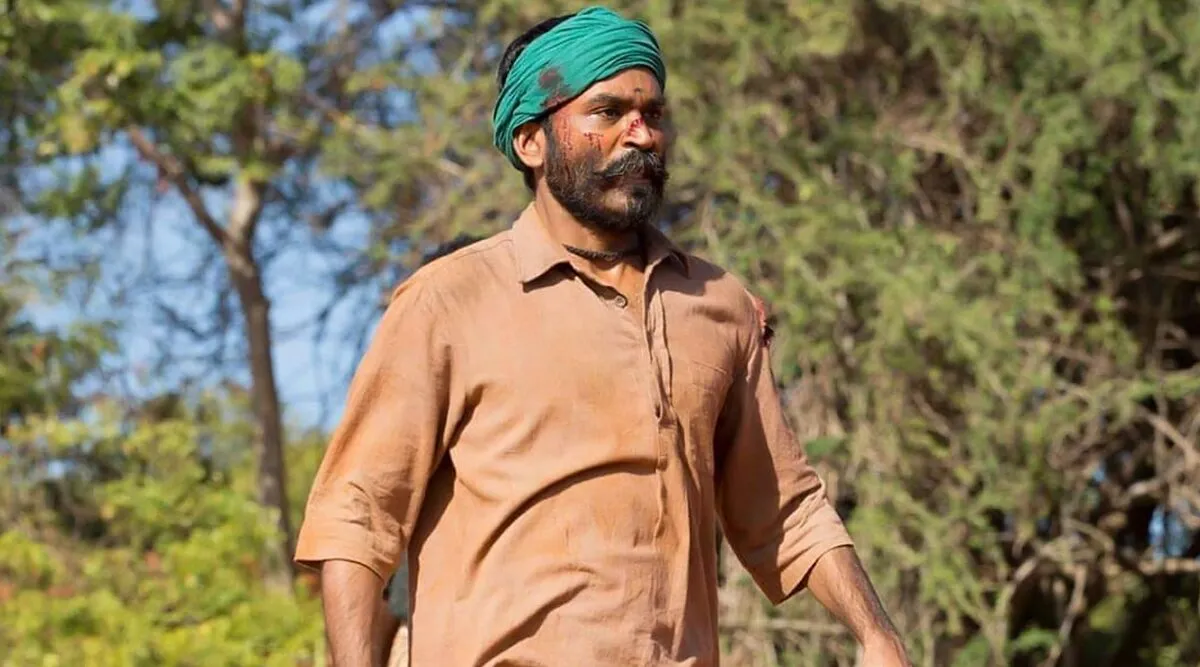
Cinematic blitzkrieg. Asuran is a violent orchestra of explosive performances and gripping storylines conducted with expert direction. Vetrimaaran’s fourth venture with Dhanush is a testament to their admiration of each other as artists. It’s a collaboration that sees its two artists, masterful in their own fields, join hands to push their limits to the extreme.
Adapted from Poomani’s novel Vekkai, Asuran is a searing, unabashed portrait of oppression, power, casteism, and gnarly vengeance. Vetri weaves masala entertainment with thought-provoking social drama to present a blood-soaked thriller. It’s sprawling, it’s serious, and it’s simply an excellent work of art.
Asuran is cleaved into two distinct tones. The first half is a nail-biting survival film centered on middle-aged Sivasamy, played by Dhanush, escorting his son to safety after he committed a crime, with the second half seeing him give it back to their pursuers and evolving into a revenge tale. Between the chaos is a flashback narrative of Sivsamy’s murky past.
Also Read: Asuran (2019) Review – A Viscerally Intense Drama on Caste Discrimination
Vetrimaaran, his contemporaries of the new wave of Tamil filmmakers, engage innovatively with the dynamics of caste politics, Dalit oppression, and class struggle. And he explores it here with a pulpy narrative. He emphasizes geography in his films, and in Asuran, he elevates it.
The spatial differences between straw huts and big mansions, from the arid, sandy Tamilnadu fields to the darkness of jungles, boulders, rocky terrains, and simple towns, add a staggering sense of awe to the atmosphere. What holds this film tightly like a spring coil is Dhanush. There is a transition from Sivasamy’s position as a vulnerable parent to a fierce fighter and, eventually, as a broken but victorious human being. The physicality of Dhanush’s performance is evident, and he pulls off the emotional scenes brilliantly to create an intense performance.
In a film touted as a gory thriller, the most memorable scene is the climax, where he tells his son how to protect himself in this oppressive world, to never succumb to the evils of caste, and that education will rescue him. G.V. Prakash Kumar’s score is an inextricable element in this grand tale. The violence can be sensationalist and cinematic in the climax, but it’s pure catharsis as Sivasamy becomes the very demon he wished never to become.

